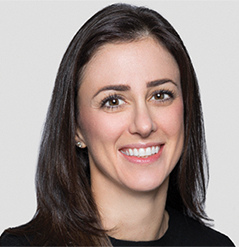Healthtech: a unique opportunity to improve care in emerging markets
The gap in levels of accessible healthcare for those in developed and emerging markets is vast but technology offers a solution.
Healthtech is set to mirror the fintech revolution, and there are clear lessons to learn about democratising access to, and the affordability of, healthcare across the world.
Technology as a financial inclusion tool is partly driven by acknowledging that large parts of the population are not being served by the existing banking system. Rather than competing with banks on the same terms, fintechs have improved accessibility for consumers who were previously deemed inefficient to serve. The largely-digital infrastructure reaches wider markets and does so in a highly cost-effective manner.
For example, in the fintech world, the United Arab Emirates (UAE)-based digital cash platform Klip does not require users to have a bank account. This makes it an ideal solution for the 1.3 million unbanked residents in the country and a springboard for the country’s ambition to be fully cashless by 2021.
Similarly, healthcare systems in many emerging markets leave billions of citizens without access to their services.
Expanding gulf
As the social and economic costs of the Covid-19 pandemic increase, the gulf between healthcare in emerging markets and developed economies continues to grow.
According to data from the World Health Organisation, there are only 0.2 physicians per 1000 people in parts of Africa. In the EU, this figure is 20 times higher, with 3.75 physicians on average per 1000 people. The comparison is equally stark concerning hospital beds: there are 1.5 beds available for every 1000 people the Middle East and North Africa (MENA); in the world’s most advanced countries there are 3.7 beds for 1000 people.
The uncomfortable truth remains that emerging market economies are unable to diagnose and treat large numbers of patients and lack adequately trained medical practitioners. In some instances, the gaps with developed economies are not just growing, but accelerating. However, some emerging markets are already looking at solutions that might help close their healthcare inclusion gap – and at rates faster than in developing economies.
In recent years, in the MENA region, the UAE, Egypt and Saudi Arabia have started to make progress in health outcomes through improved systems that focus on strengthening the delivery of health services. Technology can make those improvements more uniform across the region and within each country.
Additional infrastructure
These advances are shifting the focus from traditional asset-heavy hospitals to pioneering medtech infrastructure. These innovations frequently augment – rather than replace – existing health infrastructure. Citizens can access doctors through online or mobile channels, while practitioners can use artificial intelligence to reach a diagnosis remotely. Mobile phones have brought financial services to consumers’ fingertips, making transactions easy and on-demand. Now, about $2bn is transacted daily via mobile phones. Similarly, mobile phones can improve healthcare access by connecting doctors and patients. Naturally, these services often run on asset-light, less costly business models.
In financial services, customer data and usage patterns provide a track record of data for institutions and governments. In health, electronic medical records are transforming healthcare services by coordinating care between institutions. Technology is already creating a better understanding of medical histories and personalised treatment plans, leading to improved patient outcomes.
The exponential growth in the number of fintechs in MENA has brought innovation and agility to the industry. A similar shift in behaviour is now taking place with healthtech, as these solutions can complement the existing, necessary healthcare facilities.
Covid-19 has catalysed the uptake of digital health solutions in a way not previously experienced. It is now healthcare’s turn to revolutionise its industry and make it more accessible, affordable and mobile.
The current healthcare inclusion gap is vast, but it is not insurmountable. In time, emerging markets could leapfrog legacy healthcare infrastructure – what technology can achieve for them is far greater than the improvements it can bring to long-established systems in the US and Europe.
The potential to improve the state of healthcare inclusion through technology in the MENA region and, more generally, across emerging markets should not be wasted.
Noor Sweid is the founder and general partner of Global Ventures, a Dubai-based international venture capital company.



